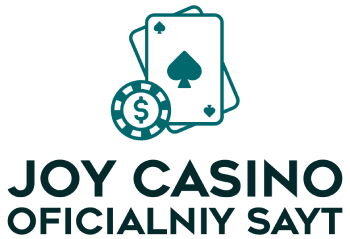Near-misses in gambling trigger a complex psychological response in players. Research suggests that these near-wins activate the brain’s reward pathways similarly to actual wins, leading to a release of dopamine and a sense of excitement. This phenomenon can create a misleading perception of being close to winning, encouraging players to continue gambling in pursuit of the elusive jackpot.
The near-miss effect can also influence decision-making, as players may irrationally believe that their chances of winning are higher after experiencing a near-miss. This cognitive bias can lead to riskier behavior and increased spending in an attempt to bridge the gap between near-success and actual success.
Furthermore, the emotional impact of near-misses can be significant, causing frustration, disappointment, or even an increased desire to keep playing. Understanding the psychology behind near-misses is crucial for both players and operators in the gambling industry to promote responsible gambling practices and prevent potential harm associated with these deceptive outcomes.
The Allure of Near-Misses
In the realm of gambling, near-misses hold a significant appeal to players. These instances, where the outcome is narrowly missed, can trigger a sense of excitement and anticipation.
For example, when slot machine reels stop just one symbol away from a jackpot or a roulette ball lands on a number close to the one chosen by the player, it can create a momentary thrill.
Near-misses have been shown to stimulate the release of dopamine in the brain, a neurotransmitter associated with pleasure and reward. This dopamine release can reinforce the desire to continue playing in the hope of achieving a win.
The near-miss phenomenon can influence a player’s perception of their own skill and the likelihood of success in the game, potentially leading to increased engagement and continued play.
Understanding the psychology behind near-misses in gambling can shed light on how these experiences impact player behavior and decision-making. By recognizing the influence of near-misses, both players and researchers can gain insights into the mechanisms that drive continued participation in gambling activities.
Cognitive Impact on Decision Making
The phenomenon of near-misses in gambling can have a significant cognitive impact on decision making. Near-misses can evoke a sense of excitement and motivation to continue playing because the brain perceives them as almost successful outcomes. Despite technically being losses, the brain interprets near-misses as progress towards winning, leading individuals to believe that a victory is imminent.
This cognitive bias can influence decision-making processes, prompting individuals to chase the near-win and take on more risks, often overlooking the actual probabilities involved. Recognizing and understanding this cognitive effect is essential for managing impulses triggered by near-misses in gambling.
Learn more in our article Psychology Behind Gambling Addiction
Emotional Rollercoaster of Almost-Winning
Approaching the brink of victory in a gambling scenario often triggers a complex emotional response known as the “almost-winning phenomenon.”
-
As symbols align and the possibility of a win becomes apparent, individuals experience a surge of adrenaline and anticipation. This heightened state of arousal can lead to increased heart rate and a sense of excitement.
-
However, the fleeting nature of gambling outcomes means that the anticipated win can quickly turn into disappointment as the final result falls short of expectations. This discrepancy between anticipation and reality can result in a letdown effect, where the near-miss is perceived as a loss.
-
Despite the disappointment of almost-winning, individuals may still maintain a sense of optimism and persistence. This can fuel the desire to continue gambling in pursuit of a successful outcome, as the near-miss can create a perception of being close to winning.
The emotional rollercoaster of almost-winning in gambling scenarios can evoke a mix of emotions, including excitement, frustration, and determination. Understanding this phenomenon is essential for responsible gambling practices and recognizing the psychological factors at play in gaming environments.
The Motivational Drive Behind Near-Misses
Experiencing near-misses in gambling can trigger a strong motivational drive to continue playing despite not achieving a win. Near-misses create a sense of almost winning, leading to increased arousal and excitement among players.
The brain processes near-misses as progress towards the desired outcome, reinforcing the belief that a win is close at hand. This perception encourages continued play in pursuit of a victory, as near-miss events can elicit a similar release of adrenaline and dopamine as actual wins.
The anticipation of a potential win serves as a significant motivator, prompting players to persist in their gambling activities even when faced with repeated near-misses.
Implications for Responsible Gambling Practices
To promote responsible gambling practices, understanding the psychological impact of near-misses is crucial. Near-misses can trigger heightened arousal and sustained motivation to continue gambling, despite resulting in losses. It’s imperative for casinos and gambling establishments to take proactive steps to address the potential harm associated with near-misses.
Here are three key implications for promoting responsible gambling practices:
-
Implementing clear signage and educational materials that explain the concept of near-misses can help raise awareness among gamblers about the potential risks involved.
-
Providing access to support services and resources for individuals who may be adversely affected by near-misses can assist in mitigating harmful behaviors.
-
Training staff members to identify and respond to indicators of problematic gambling behavior promptly can contribute to early intervention and support for individuals at risk.
Conclusion
In conclusion, the psychology of near-misses in gambling highlights the significant impact these occurrences can have on player behavior. The near-win phenomenon can trigger excitement due to the perception of being close to a jackpot, leading to increased engagement in the game. Cognitive biases, such as the gambler’s fallacy, can influence decision-making by distorting perceptions of probability. The emotional response to near-misses, characterized by a mix of frustration and hope, can drive motivation to continue playing in pursuit of a win. Understanding these psychological mechanisms is important for promoting responsible gambling practices and addressing potential issues related to problem gambling. Being aware of the effects of near-misses can help individuals make informed decisions while engaging in gaming activities.

